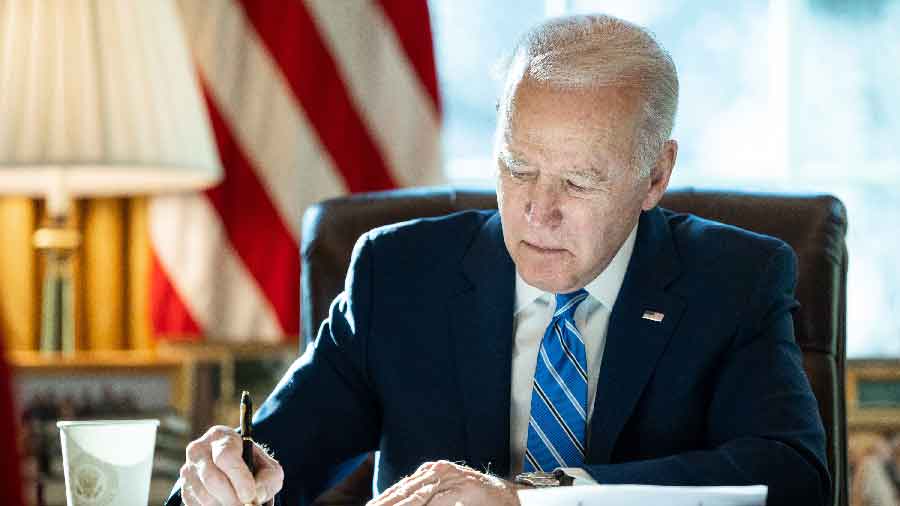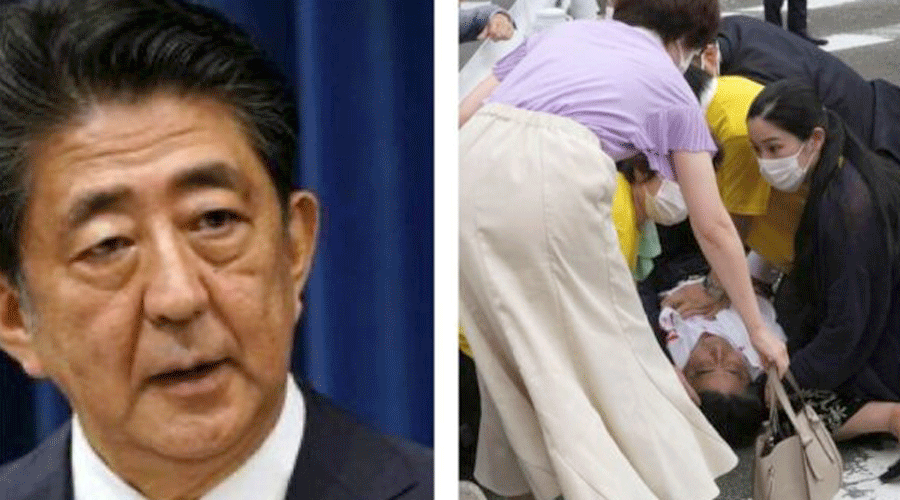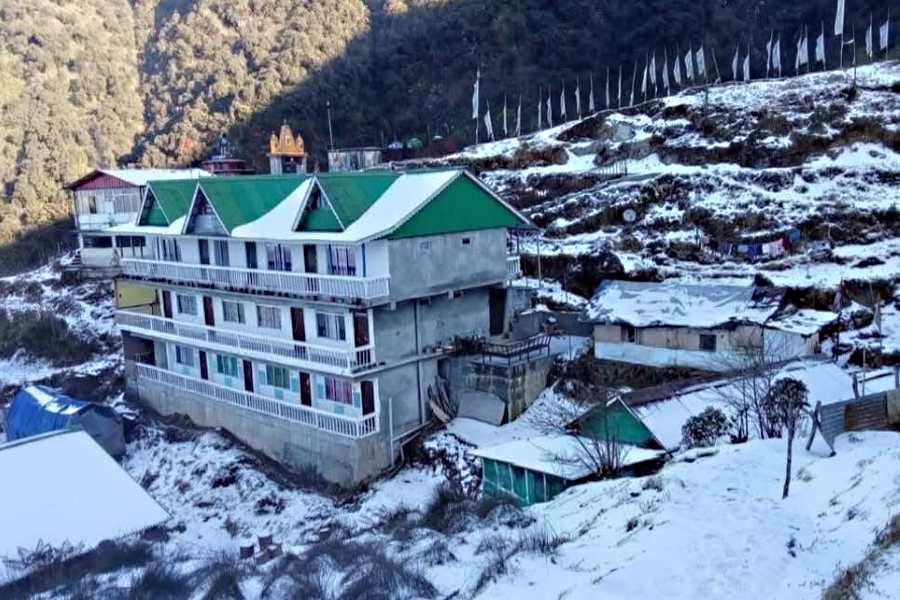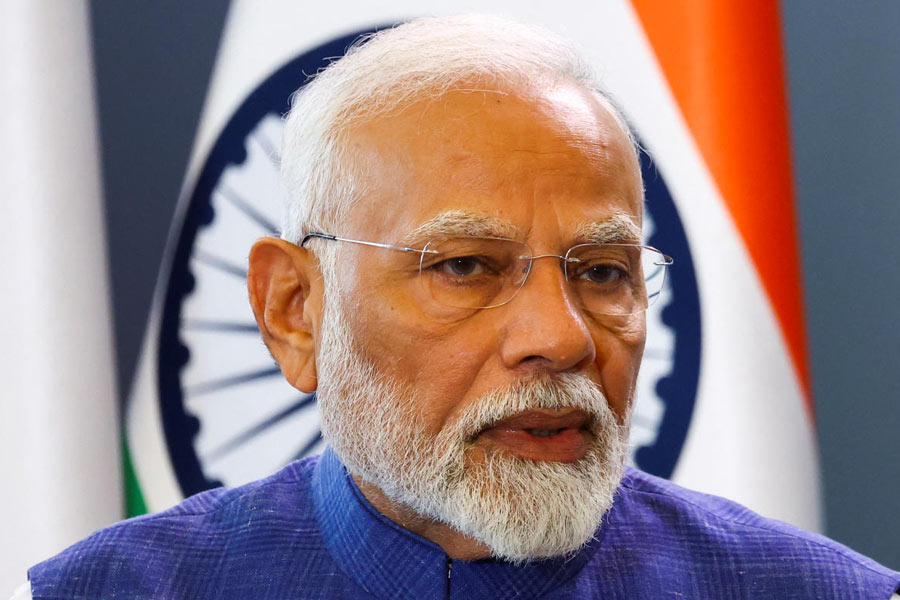President Joe Biden has called for reducing gun violence and banning assault weapons in the US to defeat "domestic terrorism" and hate in all its forms, including the "poison of white supremacy", as he condemned the attack on a Sikh gurdwara in Wisconsin in 2012 on the 10th anniversary of the heinous act.
On August 5, 2012, a white supremacist opened fire inside the Oak Creek gurdwara in Winconsin, killing six people. A seventh person who was severely paralysed died from his injuries in 2020.
"The Oak Creek shooting was the deadliest attack on Sikh Americans in our nation's history. Tragically, attacks on our nation's houses of worship have only become more common over the past decade. It is up to all of us to deny this hate safe harbour. No one should fear for their life when they bow their head in prayer or go about their lives in America," Biden said in a statement on Friday.
The President said the Oak Creek incident has shown "us the way" and recalled how after the attack, the Sikh community returned to their Gurdwara and insisted on cleaning it themselves. The son of one of the victims became the first Sikh in American history to testify before Congress, successfully calling for the federal government to track hate crimes against Sikhs and other minority groups.
Every year, the congregation now hosts an annual memorial run to honour the victims. The event bears the words 'Charhdi Kala', meaning eternal optimism , he noted.
"Fuelled by that spirit of eternal optimism, we must continue to take steps now to reduce gun violence and keep our fellow Americans safe. We must do more to protect places of worship, and defeat domestic terrorism and hate in all its forms, including the poison of white supremacy.
"We must ban assault weapons- used in many mass shootings at houses of worship and other sites across the country- as well as high-capacity magazines," Biden asserted.
Underlining that the House of Representatives last week passed a bill to do that, he said the Senate must act as well.
"To stand in defence of religious freedom, we must all stand together to ban the weapons that terrorise congregations around our country," Biden said.
Recalling the attack, the President said when generations of Sikh-Americans in Oak Creek constructed their place of worship after years of renting local halls, it was a sacred place of their own and a connection shared with the broader community. That sense of peace and belonging was shattered on August 5, 2012, when a white supremacist wielding a semiautomatic handgun arrived at the Gurdwara and began shooting.
"The gunman murdered six people and wounded four that day, as well as another victim who survived his wounds only to succumb to them years later. Jill and I know that days like today bring back the pain like it happened yesterday, and we mourn with the victims' families, the survivors, and the community devastated by this heinous act," he said.
The US is set to match or surpass its worst year on record for the number of mass shootings, according to data compiled by the Gun Violence Archive, a non-profit that tracks gun violence incidents across the country.
There have been at least 246 mass shootings through June 5 this year. That is the same number the country saw through June 5 in 2021 -- the worst year on record since the Gun Violence Archive began tracking mass shootings in 2014.
There were a total of 692 mass shootings in 2021, CNN reported in June. That 246 number also means there have been more mass shootings than days so far in 2022 -- a trend that's recurred each year since 2020 -- underscoring the growing prevalence of gun violence in American life, the report said.
Several mass shootings and a sustained rise in gun violence across the US have spurred law enforcement officials and lawmakers to push for more gun control measures.
President Biden in June signed into law the first major gun safety legislation passed in decades. Though the measure failed to ban any weapons, it includes funding for school safety and state crisis intervention programmes.
Meanwhile, in a joint statement, Health and Human Services Secretary Xavier Becerra and US Trade Representative Ambassador Katherine Tai Co-Chairs of both the White House Initiative and the President's Advisory Commission on Asian Americans, Native Hawaiians, and Pacific Islanders -- listed out the steps being taken by the Biden administration to advance policies protecting the fundamental right to practice faith without fear.
Our hearts are heavy as we remember Suveg Singh Khattra, Satwant Singh Kaleka, Ranjit Singh, Sita Singh, Paramjit Kaur Saini, Prakash Singh, Baba Punjab Singh, and all those impacted by the tragedy. The attack in Oak Creek was not just an assault on the Sikh community, but America itself and we join with millions of people who have been touched by the unwavering Sikh tenet of Charhdi Kala, or eternal optimism, they said.
While a decade has passed, Sikh Americans continue to face unconscionable harassment and violence, including in the houses of worship where so many seek peace and solace. It is our responsibility to do everything we can to protect our communities, and the Biden-Harris administration continues to work closely with faith leaders across the country to combat bigotry and intolerance in all their forms, Becerra and Tai wrote.
The Oak Creek incident was like a wake-up call that despite having coexisted in America for more than 100 years, people were not aware of the Sikh identity, its piety, the teachings, our values, tenets of universal well-being and Seva, UN-affiliated non-profit organisation United Sikhs said in a separate statement.
This year's Oak Creek commemoration is centred around the message Heal, Unite, Act, said another Sikh body SALDEF. For us, this sparks the flame to do more in our community. The Sikh faith is grounded in the oneness of humanity and we believe there is divinity within all. It is through our relationships with one another that this change is possible, it said.
The 10th Annual Oak Creek Sikh Memorial Anniversary Candlelight Remembrance Vigil was held Friday evening from 6 pm to 8 pm local time at the Sikh Temple of Wisconsin.
Ten years ago, our sangat (community) suffered the most devastating attack against Sikhs in our nation's history. As ever, our hearts remain with the families of Prakash Singh, Paramjit Kaur Saini, Sita Singh, Ranjit Singh, Satwant Singh Kaleka, Suveg Singh Khattra, and Baba Punjab Singh--as well as those who were injured during the shooting, and those who carry the burdens of trauma and loss forward to this day, said the Sikh Temple of Wisconsin.
This anniversary means many things to many people. Some still feel painful loss and absence in their households and families ten years later. Others have come of age in the past decade, learning how to lead and finding their voice in the shadow of tragedy. And still others have joined our growing community and become a part of our continuing story. There is room for this commemoration to hold the unique truth that each of us feels, the temple said.
As we reflect on this anniversary, we know that we must continue the shared work of making our society free from bigotry. In the Sikh tradition, we choose to strive for this better world without fear and without hate--and we do so in the spirit of chardi kala, or eternal optimism, it said.












